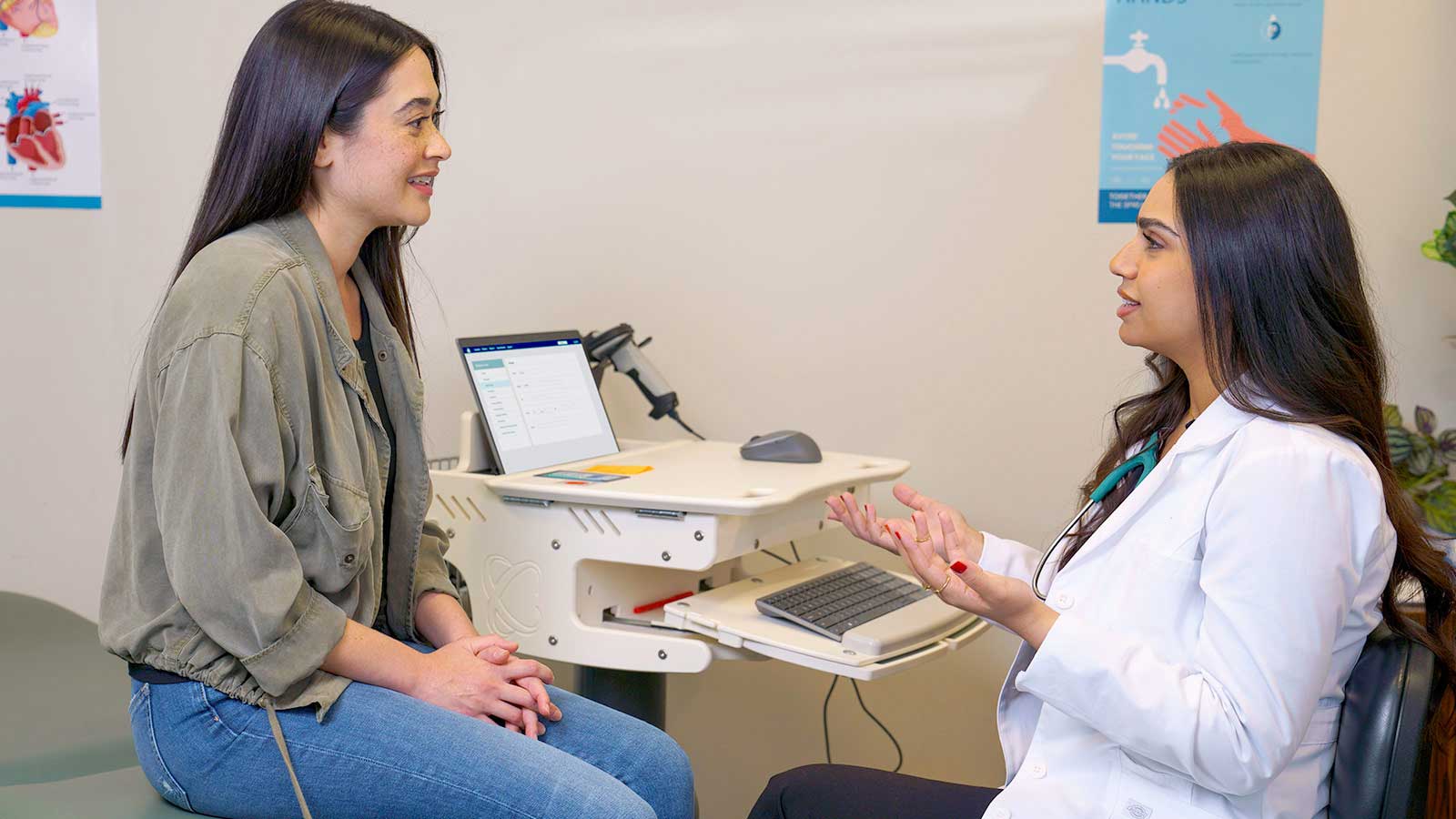Family nurse practitioners (FNPs) and adult-gerontology primary care nurse practitioners (AGPCNPs) are both advanced practice registered nurses (APRNs). This means that they possess at least a master’s degree in nursing (MSN) and have undergone advanced clinical training.
While both are well-equipped to deliver primary care, FNPs and AGPCNPs are uniquely qualified to serve specific patient populations.
Read on to learn more about the difference between FNPs and AGPCNPs as well as which career path may be the right fit for you.
What Does a Family Nurse Practitioner Do?
FNPs are advanced practice registered nurses who are qualified to provide comprehensive care to patients across their entire lifespan, from infancy to end-of-life. FNPs generally serve as the first point of contact for patients who are seeking healthcare services, treating individuals and families throughout their lives.
Dedicated to enhancing the wellness of their patients, FNPs focus on preventative care and holistic health approaches. As such, they do not work in acute care—medical treatment provided for short-term illnesses, injuries, or medical conditions that require immediate attention.
FNP’s work across diverse settings, a few of the most common are listed below.
- Family practice clinics
- Specialty clinics
- Urgent Care
- Emergency departments (ED)
- Hospital clinics and chronic care units
- Retail clinics
- Palliative care settings
- Long-term care facilities
- House calls and home care companies
What Does an Adult-Gerontology Primary Care Nurse Practitioner Do?
AGPCNPs are advanced practice registered nurses who are qualified to assess, diagnose, and treat patients ranging from adolescents (starting at the age of 13) through older adulthood to end of life. Dedicated to enhancing the health and wellness of their patients, AGPCNPs focus on preventative care and holistic health approaches.
They may also support patients transitioning between care settings, which often involves
educating patients and caregivers on how to best maintain and/or monitor the patient’s health.
AGPCNP’s work in various environments, including:
- Clinics
- Hospitals/Urgent care
- Skilled nursing facilities
- Long-term care including homes, assisted living facilities, nursing homes, etc.
- Outpatient care centers
- Medical and physician offices
What is the Process of Becoming an FNP vs. AGPCNP?
The process of becoming an FNP or AGPCNP is similar although the content of the national certification examination will vary. To become certified, both prospective FNPs and AGPCNPs typically follow these three steps:
Step 1: Become a Registered Nurse
To become a registered nurse (RN), you must complete an accredited nursing program (Associate Degree in Nursing (ADN) or Bachelor of Science in Nursing (BSN)) and successfully pass the NCLEX to obtain your license.
It’s important to note that all states require prospective RNs to hold a minimum of an ADN to qualify for their license. However, a growing number of states now require a BSN.
In states where a BSN is not required, registered nurses with an ADN are recommended to
enhance their qualifications to meet specific employer requirements by enrolling in an RN to
BSN program.
Step 2: Earn National Certification
In addition to holding an active RN license, you must become nationally certified as a FNP or
AGPCNP through an examination process via the American Nurses Credentialing Center
(ANCC) or the American Association of Nurse Practitioners (AANP).
To qualify for either examination, you must submit an application. Both the ANCC and AANP require you to submit the following to determine your eligibility:
- Proof of a current RN license
- Proof of completion of an accredited FNP or AGPCNP education program, including all supervised clinical practice hours
- Relevant transcripts
- An application fee
After successfully passing the exam, your national nurse practitioner certification will be valid for five years; however, to maintain certification, you must follow the renewal process detailed on the ANCC or AANP site.
Step 3: Apply for State Licensure
Following your RN licensure and your national certification as an FNP or AGPCNP, you must become licensed in the specific state where you plan to practice. As licensure requirements differ by state, it’s important to understand the requirements outlined by your state’s Board of Nursing.
The application process for most state licensure requires a minimum of:
- Proof of a current RN license
- Proof of national FNP or AGPCNP certification
- Proof of the completion of an accredited FNP or AGPCNP program, including all supervised clinical practice hours
- An application fee
Deciding Which Educational Path Fits Your Needs
Although the general process of becoming a FNP or AGPCNP is similar, the specific coursework varies.
FNP programs typically offer a comprehensive range of pediatric courses, preparing practitioners to care for patients from infancy through the end-of-life. In contrast, AGPCNP programs focus on adolescent to adult care, generally excluding pediatric courses from their curriculum. Visit WCU’s catalog to learn more about FNP and AGPCNP courses.
Once you’ve decided on the right fit for you, consider applying to an accredited nursing program that not only meets your state’s criteria to become an FNP or AGPCNP, but also aligns with your professional goals.
WCU Helps Support Students Through Their Educational Journey
No matter which path you choose, becoming an FNP or AGPCNP can empower you to lead a successful career. Both roles are fulfilling in their own way, offering opportunities to make a meaningful impact on the health and well-being of individuals and communities.
WCU’s online FNP specialization is available through the following programs:
The online AGPCNP specialization is available through the following programs:
Visit one of the program pages above and submit a request for additional information to begin planning for a rewarding career
WCU provides career guidance and assistance but cannot guarantee employment. The views and opinions expressed are those of the individuals and do not necessarily reflect the beliefs or position of the school or of any instructor or student.



